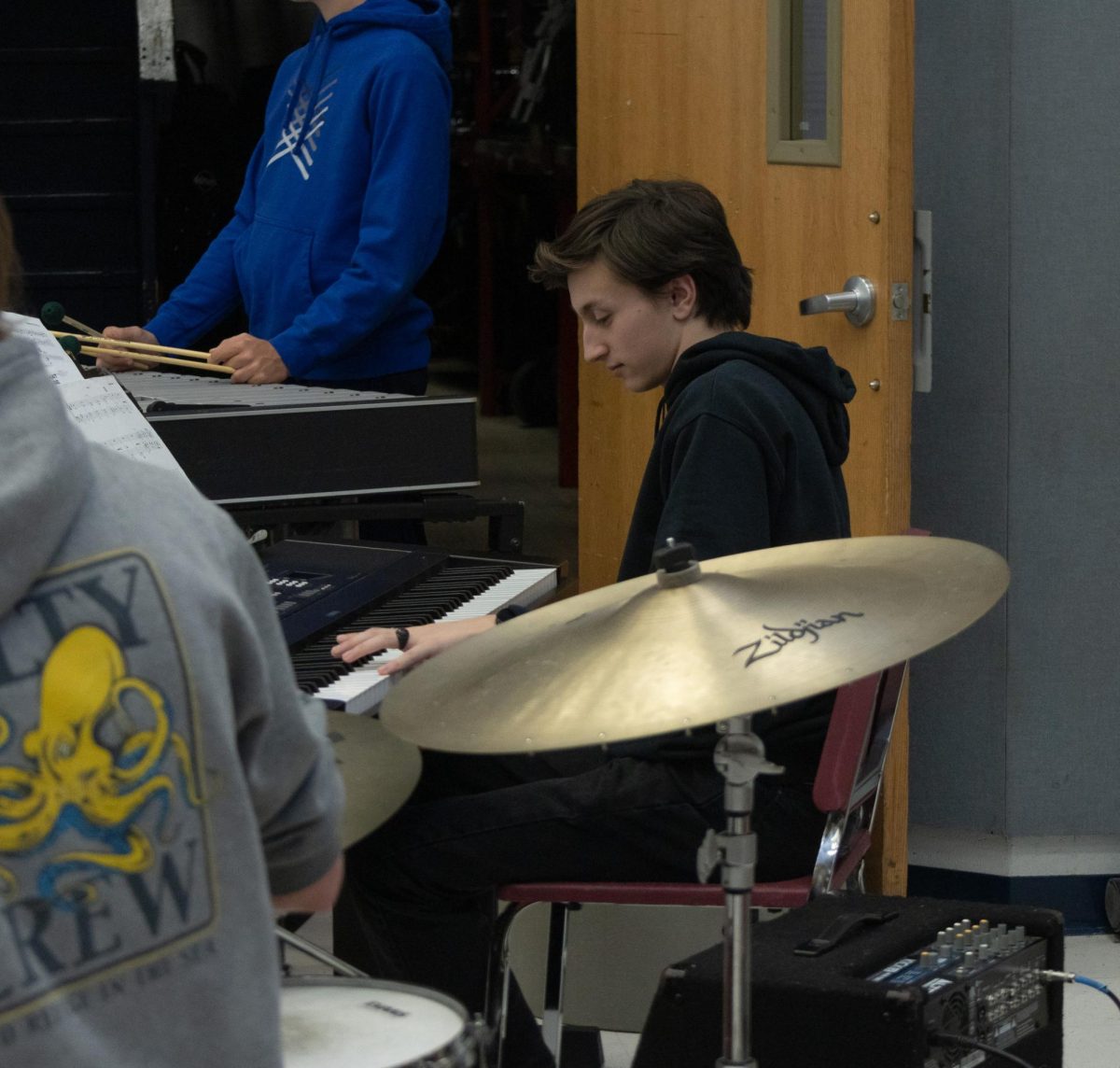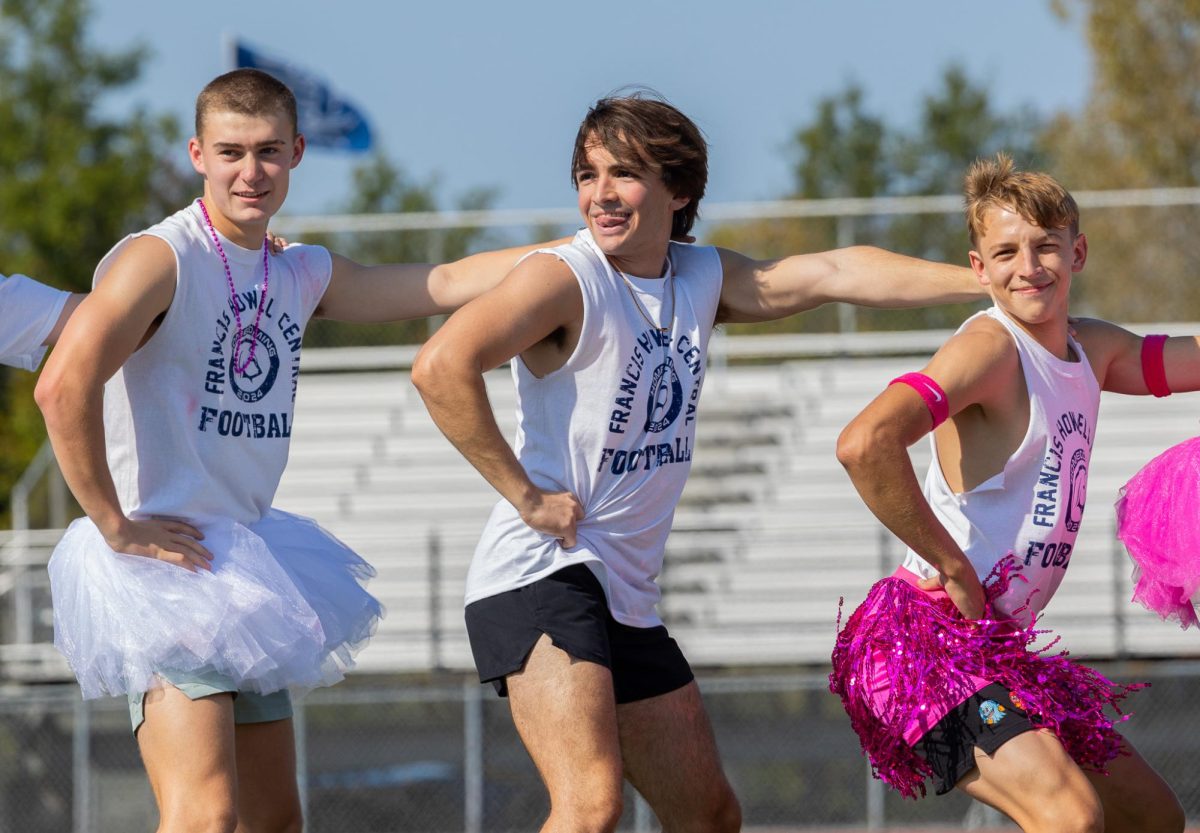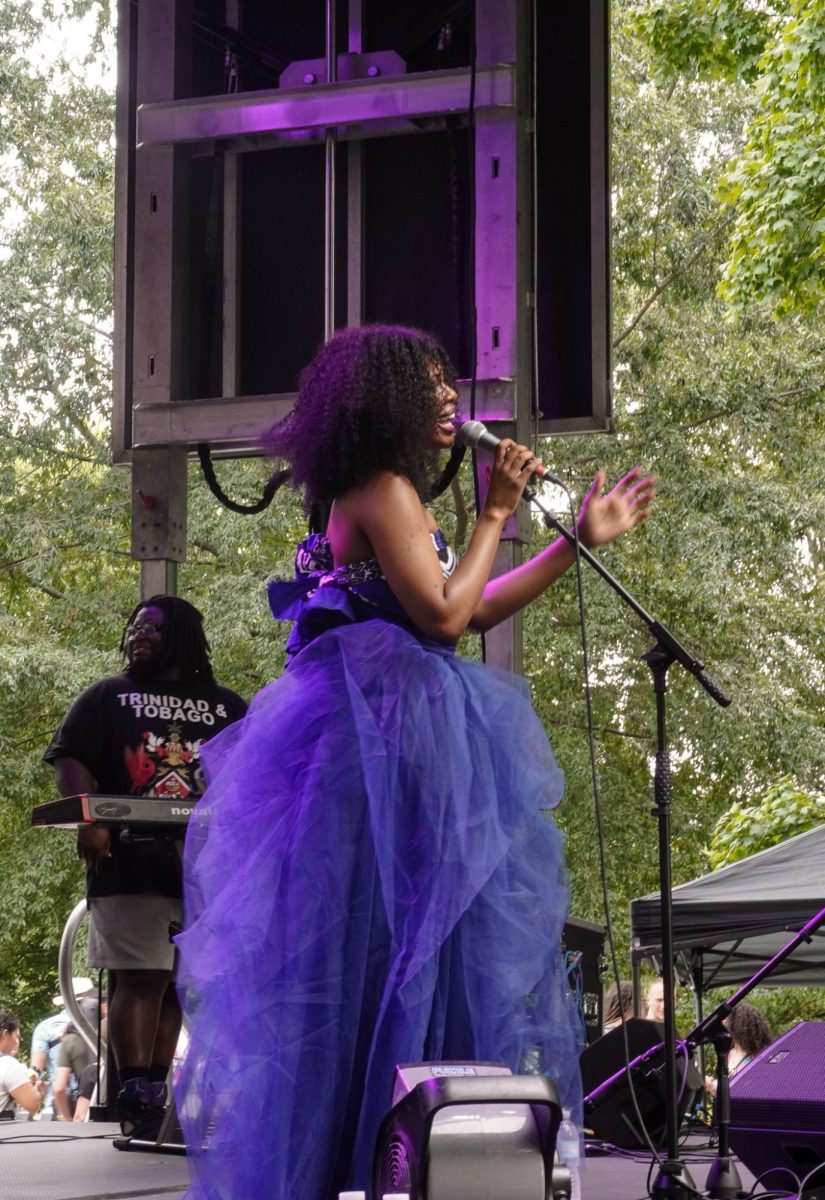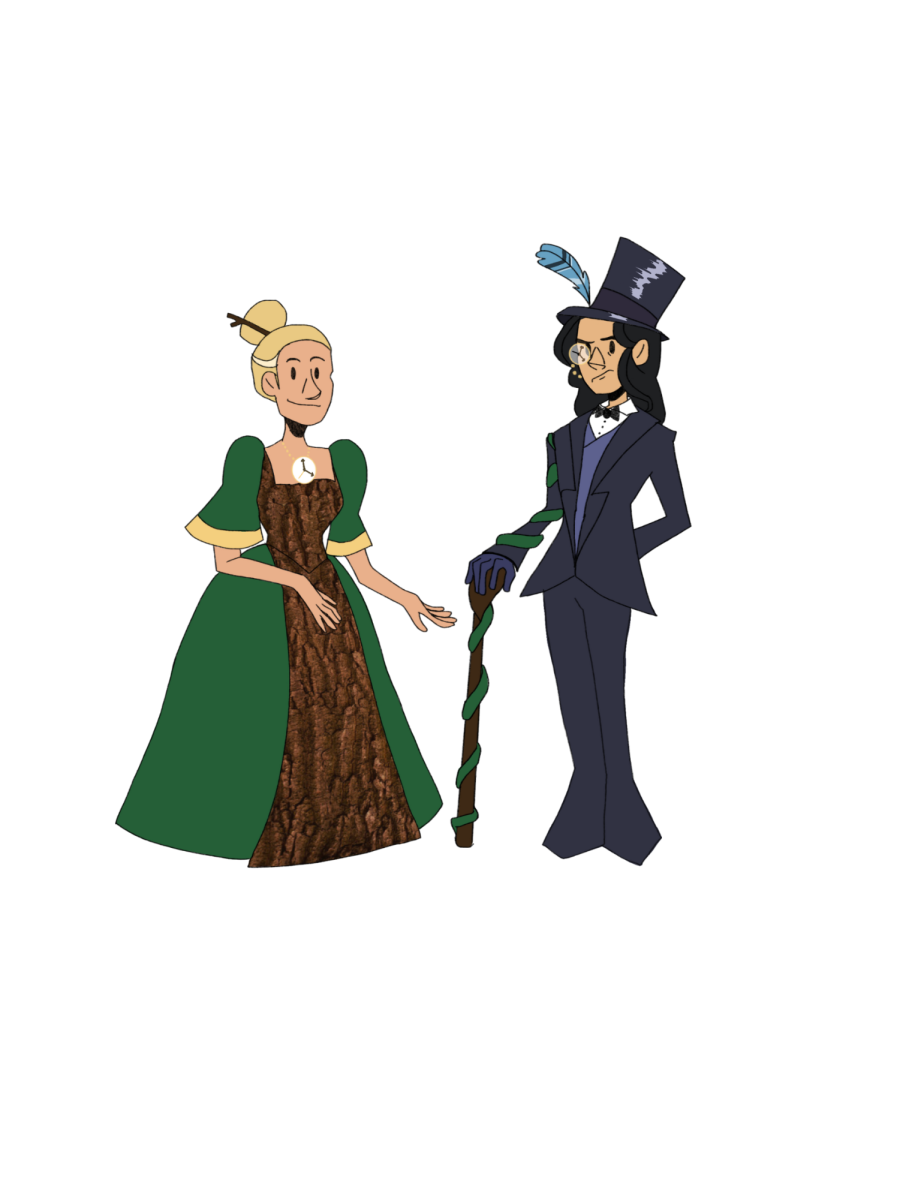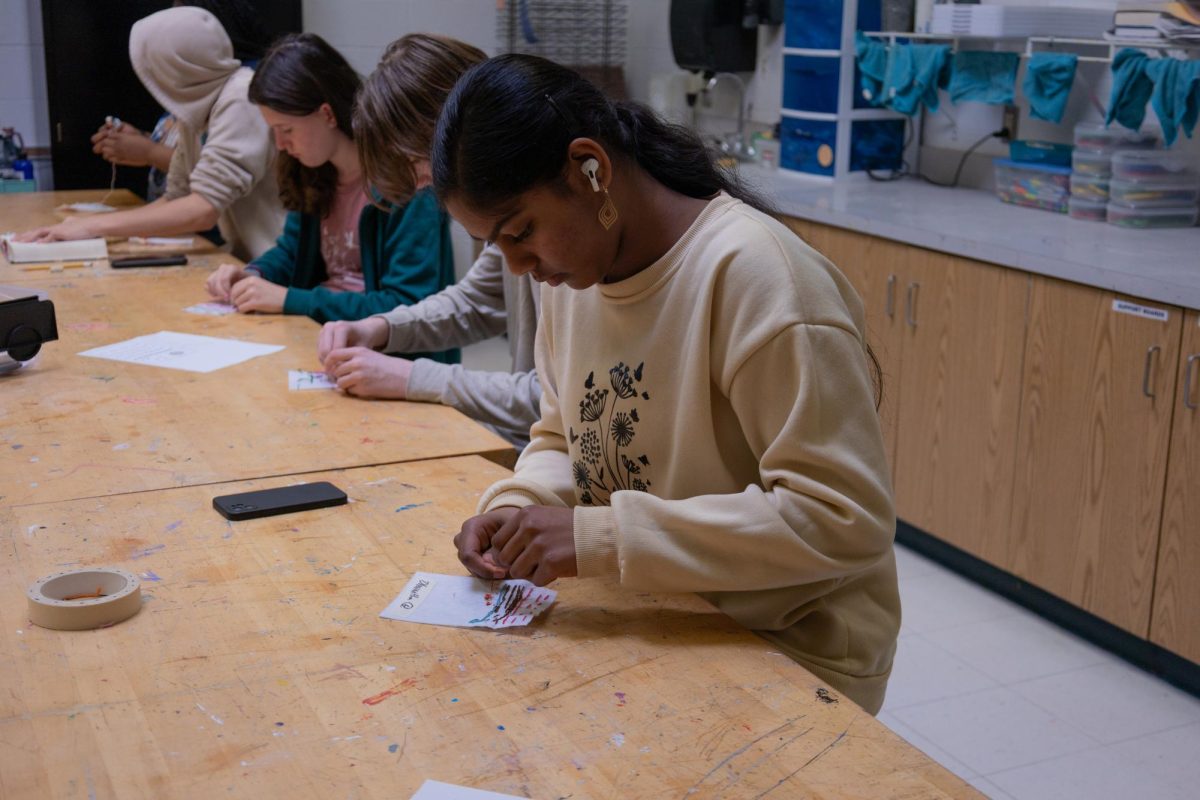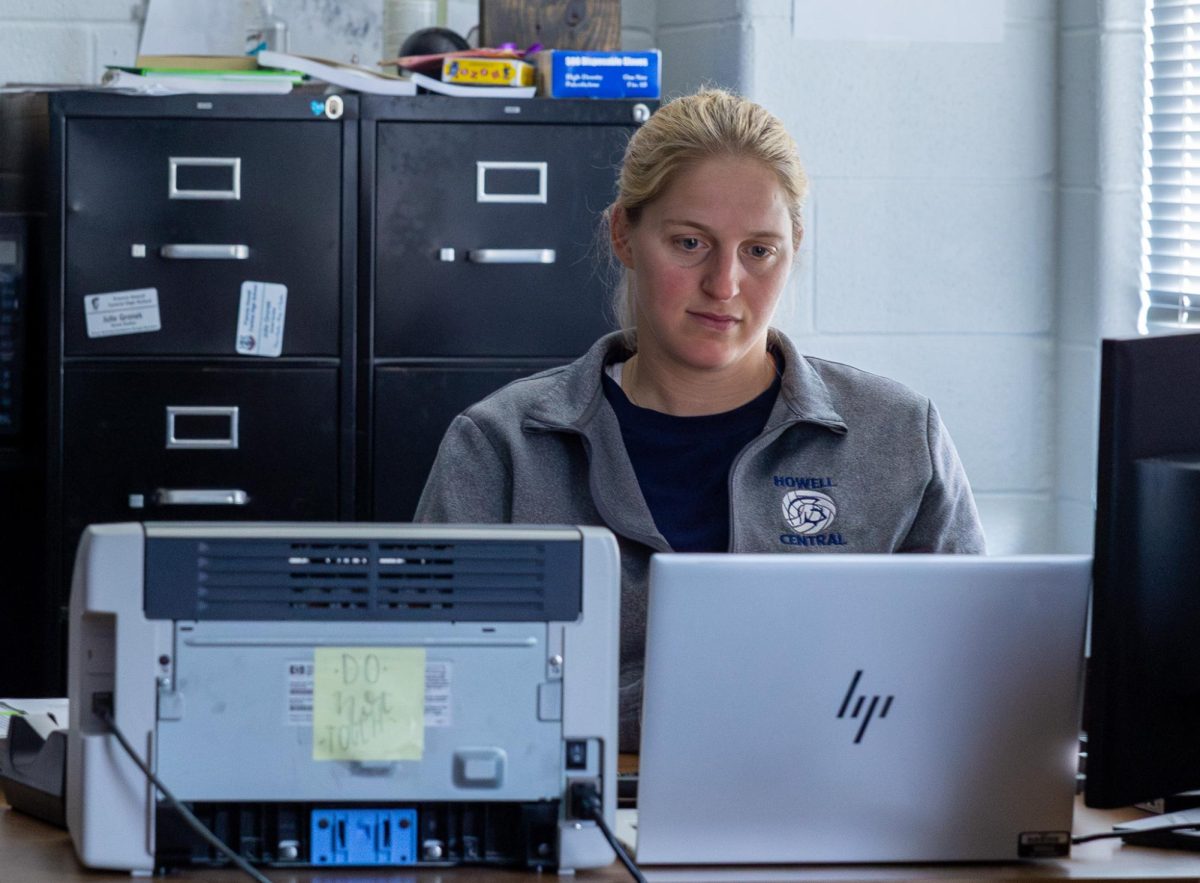Senior Tony Valera rushes out of a classroom, snare drum in hand. Valera has to quickly grab his marimba in order to be ready for his next performance. This performance means a lot to Valera, and because of this, he takes a moment to take the hustle and bustle of the festival/competition in. Before he steps back into the classroom which he will be performing in, he takes a deep breath.
Valera, and many other musicians, on Mar. 2, 2024 headed to Fort Zumwalt East to perform at a state-wide festival, called solo and ensemble. Solo and ensemble is a MSHAA competition for Missouri. And Valera, who ended up receiving an exemplary 1 rating (the highest score possible) gives a brief description.
“Solo and Ensemble is this festival that’s held all over the state. States all over the country do it, but specifically for Missouri, it’s a contest style festival where students from each school can bring either solos, [pieces they’ve learned on their own] or ensembles, [music performed with a group]” Valera said.
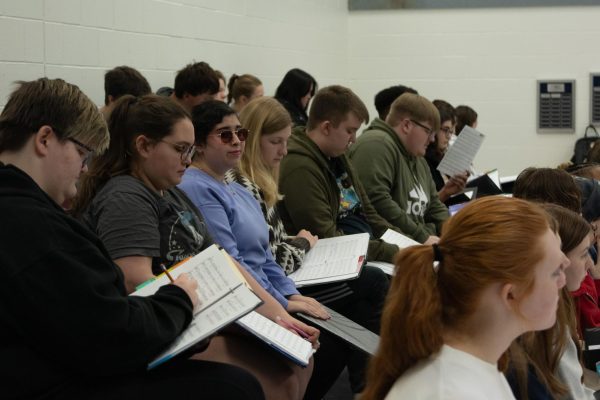
Solo and ensemble is scored on a scale of one to five, one being the best score you can receive. Junior Mariana Merritt, who also got an exemplary one score at solo and ensemble, explains her view of solo and ensemble specifically as a vocal performer.
“Solo and ensemble is basically a competition against yourself. In other words it is an audition to see if you get into the higher ensemble performance to perform in front of a judge to see how well you perform for yourself in terms of your own personal level,” Merritt said.
In order to score as well as these two musicians do, lots of hard work and effort has to go into learning and perfecting the music for their performance. Valera details how he was able to find time dedicated to honing his music skills.
“I spent six of my seven hours [at school] in the band room. So whenever I could I practiced my music. Especially during my TA hours when the class was doing their own thing, I would bring a marimba or snare out into the auditorium and spend hours preparing. I play [my pieces] for my friends so I can get a second opinion [on my performance], and I would have my directors give me tips on my performance as well,” Valera said.
Merritt explains that although she is a vocal musician, she had a similar experience to Valera in terms of how much preparation went into her solo and ensemble experience.
“Preparing [for Solo and Ensemble] looks different for everybody. Personally, I have been preparing since June. I picked out my music in May right after solo and ensemble last year when I went as a sophomore. So I have been preparing since summer, practicing for days and days on end,” Merritt said.
Senior Everett Scott, also a top scoring musician at solo and ensemble, spells out what the actual day of going and performing at solo and ensemble looked like for him.
“It was very busy and very stressful. I had four events, two solos, and two small ensembles. The school [that we performed in] was very busy, cramped, and hot. All my events were lined up back to back so I was running back and forth trying to get stuff set up,” Scott said.
Valera then explains that his solo and ensemble experience was just as chaotic as Scott’s.
“They ended up scheduling my two solos right after my ensemble [performance] so I had to go straight to my solos. Then the person that [was scheduled] in between my two solos canceled, so I had to [perform] them both back to back. The ensemble [that I performed in] was a percussion quartet with three of my friends. And I had a snare drum solo and a marimba solo. After we performed we got our scores, I ended up getting an exemplary on both of my solos and a silver [an outstanding 2 score] for the ensemble,” Valera said.
Because all three of these musicians scored a one at solo and ensemble, they will have the opportunity to perform at state later in April. Merritt, from her past experiences signing at state, details what performing at state will look like for these musicians.
“[At state] you will wait your turn till it’s our turn to perform. When you go in, you’ll probably wait for the judge to finish writing down a couple notes from the previous person. A few people from your school may come in to watch you, as well as your parents and teacher if they’re there. It’s essentially a miniature concert for yourself and so you’ll perform for them as well as the judge,” Merritt said.
While some may consider performing at state to be a very nerve wracking event, Valera disagrees. In fact, he is thrilled to be able to perform at state.
“I’m excited [for state]. I didn’t really expect to make it this year. I’ve been very busy with a bunch of band stuff so I didn’t have as much time to practice my solos as I thought I would. I have a while before state happens, so I’m feeling kinda nervous but also really excited to get to prove myself in front of a judge and to get to better myself as a musician,” Valera said.
Scott shares that due to his past experience of performing at state, he has acclimated to the nerves of the event, and now only feels enthusiasm towards state.
“I’m not really nervous about state, this is my third time going to state so I’m used to it. It’s exciting though! This year I’m taking my two solos and I think these are my favorite solos that I’ve done so far, and I’m really excited to play them,” Scott said.
Merritt reflects on her feelings towards this year’s solo and ensemble competition in comparison to last year.
“This [solo and ensemble] was a lot more relaxed than [last year]. I just wasn’t as nervous this time around. I laughed a little bit before going in, so that probably helped me relax,” Merritt said.
Scott explains why he enjoys the variety that solo and ensemble brings to his band experience.
“I did [enjoy performing at solo and ensemble]. I think it’s always fun because you get to perform something that you worked on by yourself as opposed to stuff that we normally do as a full band. It’s fun to experiment with that,” Scott said.
Next, Valera describes his favorite aspect of solo and ensemble, getting to see other musicians perform the pieces that they’ve put a lot of effort into.
“I like to come in [to solo and ensemble] really early, around 9 a.m., so I can see all my friends performing. I had a lot of friends playing, and I didn’t end up performing my first ensembles until two or three that day. But I enjoyed it because I got to see a lot of really cool performances. Whether it be a marimba solo or a clarinet, there’s a lot of variety and you get to see performances that you may not get to see in a normal band setting,” Valera said.
Finally, Valera concludes why he appreciates the new challenges that performing at solo and ensemble can bring.
“I really enjoy solo and ensemble because I like to use it as a chance to challenge myself. Every year I take a piece [of music] that I know I will learn something from. I don’t wanna take an easy piece just to get gold, I want to challenge myself,” Valera said.




